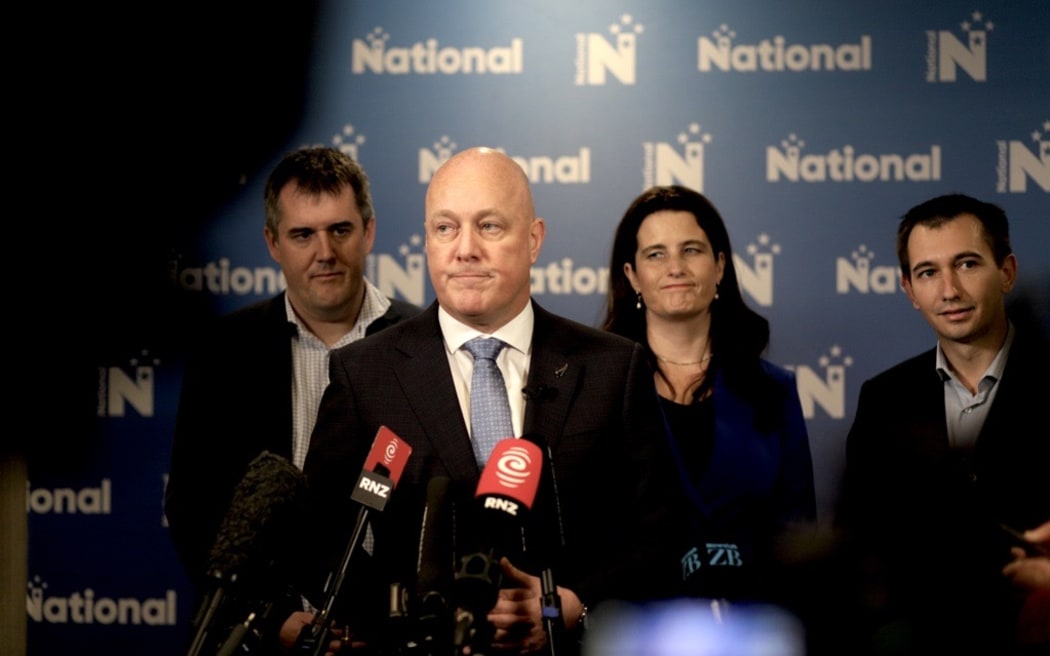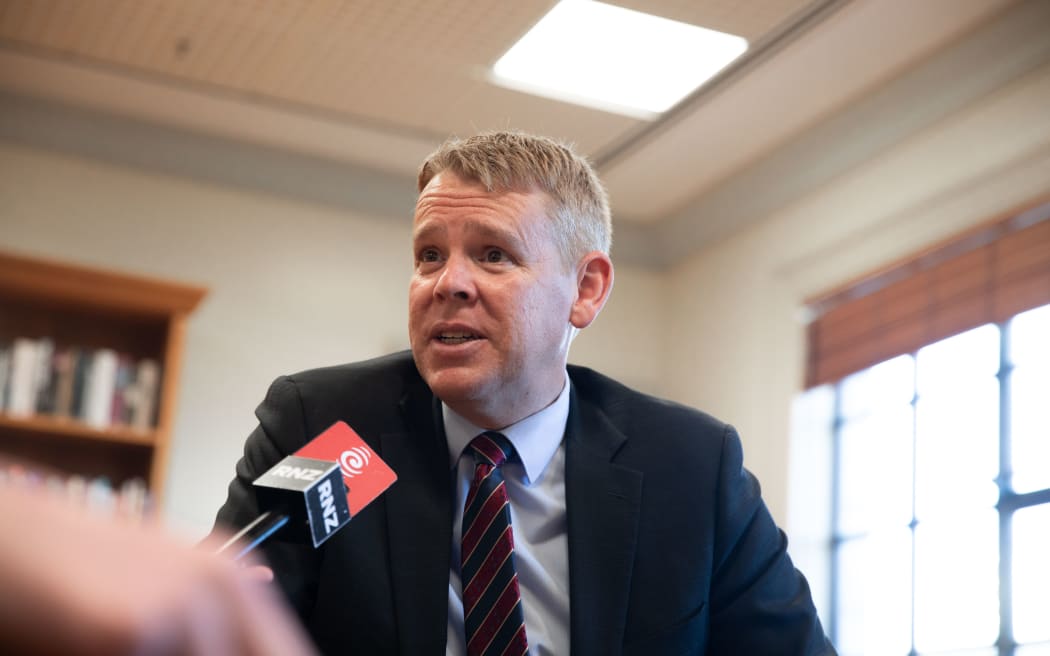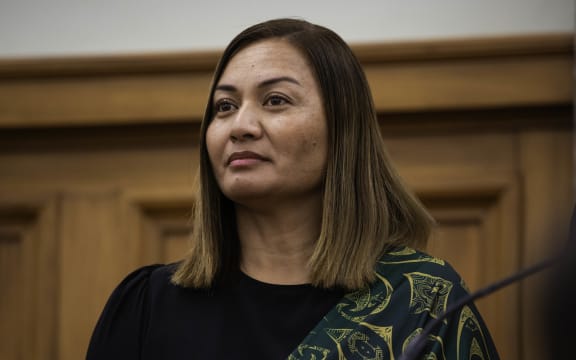
The government needs to make some tough choices to restore the economy, Christopher Luxon says. Photo: RNZ / MARIKA KHABAZI
Finance Minister Nicola Willis is backing Prime Minister Christopher Luxon's stance on the "fragile" economy, saying it's in a worse state than many thought.
In his first State of the Nation address as prime minister, Luxon said rebuilding the economy, restoring law and order, and delivering better schools and hospitals were key focuses.
In the speech in Auckland on Sunday, he said his administration faced making some tough choices to get government spending under control and referred several times to welfare dependency.
"The free ride is over," he said.
He also promised to be "straight up" with Kiwis about the country's "fragile" economic situation, saying the Labour government had left behind a $200 billion spending hole in its transport costs.
Willis said the country has been going through two years of a cost of living crisis accompanied by high interest rates and now unemployment was set to rise and the outlook for growth was low.
This was occurring while the government's books were in a "pretty bad shape" with big deficits and a huge amount of debt - meaning the government was faced with lifting the economy out of its "fragile position".
Told Standard and Poors had recently given the New Zealand economy a AA+ rating and the net debt was at about the OECD median, Willis responded "careful choices" needed to be made.
If New Zealand continued on the same path of the last six years it would end up in a "very difficult position", she said.
"We see ourselves as having a big task of driving better value for the spending that we do, driving better results from public services and giving New Zealanders the sense that in the future they'll be able to earn more and have more choices in their own household budgets."
Asked if the government would set hard targets on debt and spending as a percentage of gross domestic product (GDP), Willis replied that on 27 March she would release a Budget Policy Statement which would lay out its fiscals both for the short term and long term.
Willis said the previous government had changed the way they measured the country's debt and it resulted in making it look about 20 points lower than what it should have been.
"It's now heading to about 44 percent of our GDP - that's really high by New Zealand's historic standards."
At the same time people had high levels of private debt.
The Labour government had also kept on delaying the goals they had set themselves, including the return to surplus.
"We're not going to be able to fix in one Budget what's gone on over six."
She was questioned again on setting hard targets and replied it would all be made clear in the statement on 27 March.
On welfare dependency, Willis said the best path out of poverty was to help someone into paid work.
"We have had employers crying out for workers whether it's on farms, whether it's in retail shops. Employers have been saying they need skilled people but also that they need low-skilled people but haven't been able to find them.
"It is not a kind thing to let someone linger on welfare for many years."
She said not having sanctions has driven up job seeker numbers.
Tax cuts at heart of National criticism - Hipkins
National is exaggerating the country's economic woes as it attempts to wriggle out of its unaffordable tax cut promises, Labour leader Chris Hipkins says.
He said the country's economy was not in a fragile state, however, it was still recovering from the pressures caused by the pandemic and its aftershocks.
It had come out of the pandemic with relatively low debt in comparison to many other countries, and while unemployment was "ticking up", it was still low compared with other developed countries.
During the election campaign economists had warned National it hadn't allowed enough funding for both cost pressures and tax cuts, Hipkins said.

Chris Hipkins. Photo: RNZ / Samuel Rillstone
"Now it's abundantly clear that the numbers don't add up so they're trying to create a scenario in which they can break the promises they made because they could never afford to make them in the first place," Hipkins told Morning Report.
"The manifesto, the promises they made in the election were not credible and they were not funded."
During the global financial crisis, it took the National government of the time eight years to return the economy to surplus, he said.
"The global financial crisis and the pandemic should be seen through a similar lens. They both were major shocks on the world economy, and New Zealand, as a small trading nation, really feels the effects of that."
On the new government's welfare reform plans, Hipkins said the population had grown in the past few years. The pandemic also had an impact on many people's jobs.
The last National government had also tried to apply sanctions on unemployed people and it failed that time, Hipkins said.
"The National government would tell you that if you're just mean enough to beneficiaries they'll go into work. The reality is that we're going to have to provide a bit more carrot alongwith any stick to get people into work," he said.
"Sanctions are likely to lead to more unstable employment outcomes that are often very short-lived. We actually want to see people getting off benefits and into sustainable long-term employment."
PM accused of wanting to punish beneficiaries

Marama Davidson Photo: RNZ / Angus Dreaver
Greens co-leader Marama Davidson said harsh sanctions on beneficiaries would only increase poverty "and cruelly punish people".
"Sanctions do not work to create stronger families and to support families into [making] healthier decisions for themselves.
"They will create more hardship for those already struggling."
Davidson said she rejected the narrative that beneficiaries were lazy.
The Greens aimed to end poverty and to achieve this there needed to be radical reform of the tax system that would deliver higher taxation of "the mega-wealthy" and a guaranteed minimum income.

